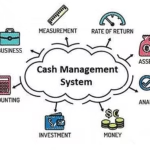Introduction:In House Financing
Navigating the world of financing can feel overwhelming, especially when it comes to making significant purchases. Whether you’re eyeing a new car or dreaming of home renovations, understanding your financing options is crucial. One option that has gained popularity in recent years is in house financing. But what exactly does it entail? As you delve into this article, you’ll uncover how in-house financing works, its benefits and risks, and who stands to gain from this type of financial arrangement. Get ready to empower yourself with knowledge that could transform your buying experience!
What is In House Financing?
In-house financing is a lending option where the seller or manufacturer provides the loan directly to the buyer. This arrangement eliminates the need for traditional banks or credit unions, creating a more streamlined purchasing process.
Often seen in industries like automotive sales and furniture stores, in-house financing allows buyers to secure loans through the dealership itself. Here, customers can negotiate terms that cater specifically to their financial situation.
This method often appeals to those with less-than-perfect credit scores who may struggle to obtain conventional loans. By bypassing third-party lenders, sellers can expedite transactions while offering flexible payment plans tailored to individual needs.
In-house financing represents an alternative route for securing funding when conventional options feel out of reach. Potential borrowers need to grasp how this system works before jumping into any agreements.
The Benefits of In House Financing
In-house financing offers a seamless process for both buyers and sellers. With direct access to funds, transactions can often close faster than traditional financing methods.
Another notable benefit is the flexibility in payment plans. Businesses can tailor terms to suit individual customer needs, making affordability more achievable for many.
This approach also fosters stronger relationships between lenders and borrowers. Since everything is handled internally, communication tends to be clearer and more efficient.
Moreover, in-house financing can attract customers who may have difficulty securing loans through banks or other financial institutions. This opens up opportunities for those with less-than-perfect credit scores.
Additionally, it enables companies to maintain control over their lending criteria. They can assess risk based on personal knowledge of their clients rather than rigid guidelines set by external lenders.
The Risks of In House Financing
While in house financing offers attractive options for buyers, it comes with its own set of risks. One significant concern is the higher interest rates that may accompany these loans. Dealerships or companies often charge more compared to traditional banks because they take on greater risk.
Another issue is the potential for predatory lending practices. Some businesses might not fully disclose terms or fees, leading customers into unfavorable agreements. It’s crucial to read all documents carefully and ask questions before committing.
Additionally, if you miss a payment, consequences can arise quickly. Unlike conventional lenders who may offer grace periods, in house financing arrangements can be stricter and less forgiving.
Limited choices can also pose a problem. With only one financing source available, borrowers might miss out on better deals elsewhere that fit their financial situation more comfortably.
How In House Financing Works
In house financing is a straightforward process that allows customers to access loans directly from the seller. This eliminates the need for third-party lenders, streamlining the borrowing experience.
When you choose in house financing, you’ll typically fill out an application with the business offering it. They will assess your creditworthiness and financial situation on-site. The terms of repayment are often more flexible than traditional loans.
Once approved, you’re presented with a payment plan tailored to your budget. You’ll make monthly payments directly to the company instead of a bank or credit union.
This arrangement can be beneficial for those who may have difficulty securing conventional financing due to credit issues or a lack of established credit history. It’s an accessible option designed to facilitate purchases while maintaining a close relationship between buyer and seller.
Who Can Benefit from In House Financing?
In house financing can be a game-changer for various groups of consumers.
First-time buyers often find it particularly beneficial. They may struggle to secure traditional loans due to limited credit history. In-house options offer an accessible pathway to ownership.
Small business owners also gain advantages from this financing model. They might need quick access to funds but face challenges with banks and external lenders. Companies can leverage in-house programs for equipment purchases or expansion without the lengthy approval processes.
Moreover, individuals with less-than-perfect credit scores can see significant benefits. Traditional lending avenues may overlook them, while in-house financing is more flexible and accommodating.
Those looking for specialized products, such as cars or furniture, often appreciate the convenience of tailored payment plans provided by retailers offering in-house financing solutions. This allows them to acquire what they need without financial strain upfront.
Alternatives to In House Financing
When considering financing options, in-house financing isn’t the only game in town. There are several alternatives worth exploring.
Traditional bank loans often come with lower interest rates and more flexible repayment terms. They may require good credit, but can provide substantial funding for larger purchases.
Credit unions also offer competitive rates and personal service. Membership eligibility varies, but many people find these institutions more approachable than big banks.
Another option is peer-to-peer lending platforms, which connect borrowers directly to investors. This approach can yield quick approvals and less stringent requirements.
There’s always the possibility of using a credit card for smaller purchases or emergencies. While this might incur higher interest rates, it offers immediate access to funds if needed swiftly.
Evaluating each alternative enables better financial decisions tailored to individual circumstances and needs.
Tips for Choosing the Right In House Financing Option
When exploring in house financing options, start by assessing your financial situation. Understand how much you can afford to borrow and repay without stretching your budget.
Research multiple lenders. Compare their terms, interest rates, and repayment plans. This gives you a clearer picture of what’s available.
Look for transparency in communication. A reliable lender should provide clear information about fees and conditions up front.
Consider the flexibility of the payment plan. Some options may allow for early payments or adjustments based on your circumstances.
Check reviews or seek recommendations from others who have used in house financing before. Their experiences can guide your decision-making process effectively.
Read the fine print carefully to avoid any surprises down the line. Understanding all aspects of an agreement ensures you’re making a well-informed choice tailored to your needs.
conclusion and FAQ’S
When it comes to financing options, in house financing offers a unique approach that can be beneficial for both buyers and sellers. It provides flexibility, potentially lower costs, and the ability to tailor payment plans directly with the lender. However, it also carries risks such as higher interest rates or less favorable terms than traditional loans.
Understanding how in house financing works is crucial. It typically involves a seller offering direct credit to buyers rather than going through banks or other financial institutions. This process simplifies transactions but requires careful consideration of all terms involved.
Various audiences can benefit from this type of financing. Buyers with limited credit history may find it easier to qualify, while small businesses looking for quick access to capital could leverage these arrangements effectively.
Exploring alternatives is essential too—options like bank loans or credit unions might provide better terms depending on your situation. Always weigh those against what an in house option has to offer.
Before committing to any plan, there are important tips worth considering: thoroughly read contracts, compare multiple offers, and don’t hesitate to negotiate the terms that work best for you.
As you navigate through your financing choices, understanding every aspect allows you not only to make informed decisions but also to help ensure they align with your financial goals. Should questions arise along the way regarding specific aspects of in-house financing? Here are some frequently asked questions:
FAQs
1. What types of businesses commonly use in-house financing?
– Many car dealerships and furniture stores utilize this method as part of their sales strategy.
2. Can anyone apply for in-house financing?
– Generally, yes; however, approval depends on individual circumstances, including creditworthiness.
3. Are there hidden fees associated with in-house financing?
– Always ask about fees upfront; transparency varies by lender.
4. Is a down payment required when using in-house finance?
– Often yes; requirements vary by business policies.















Leave a comment